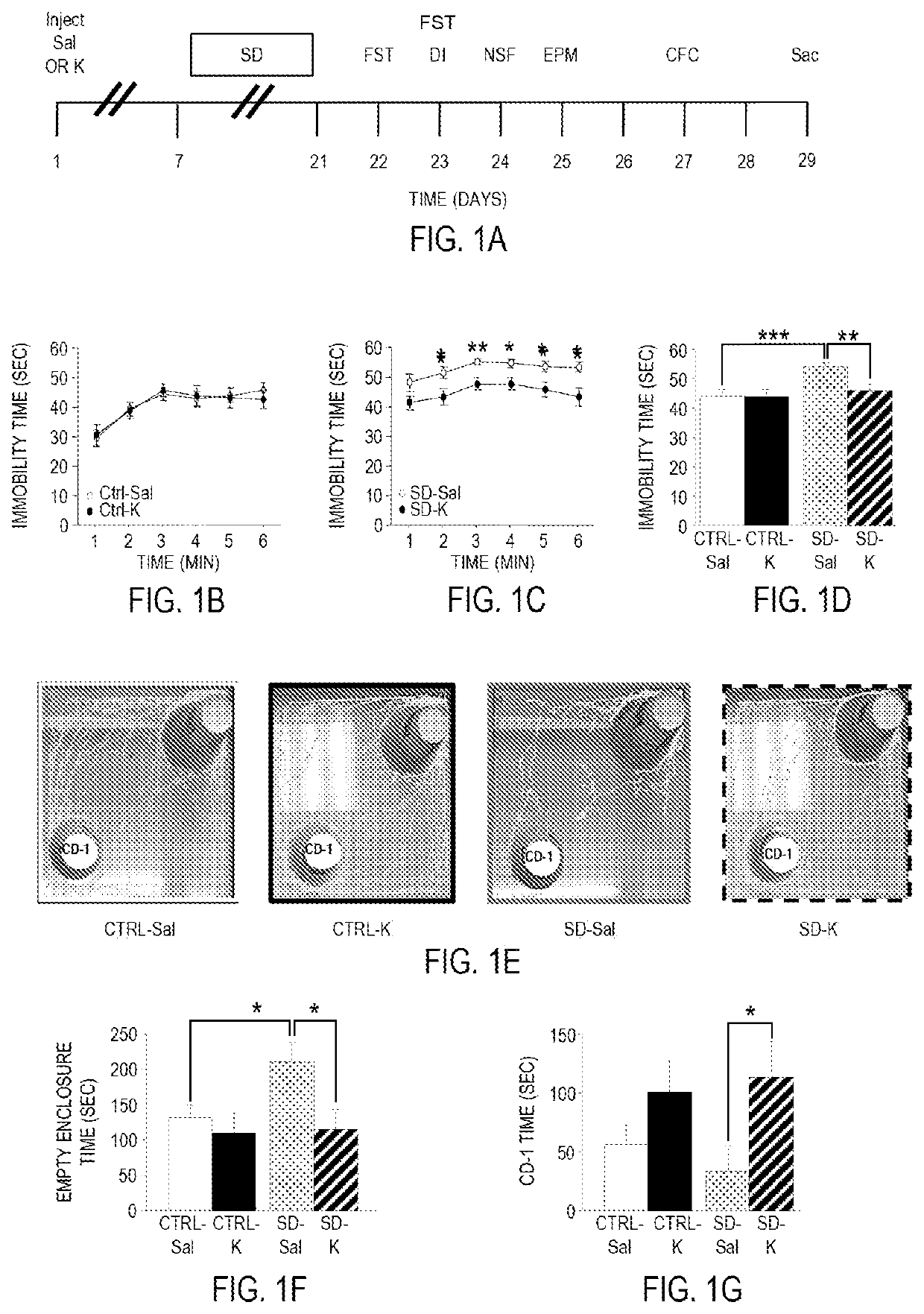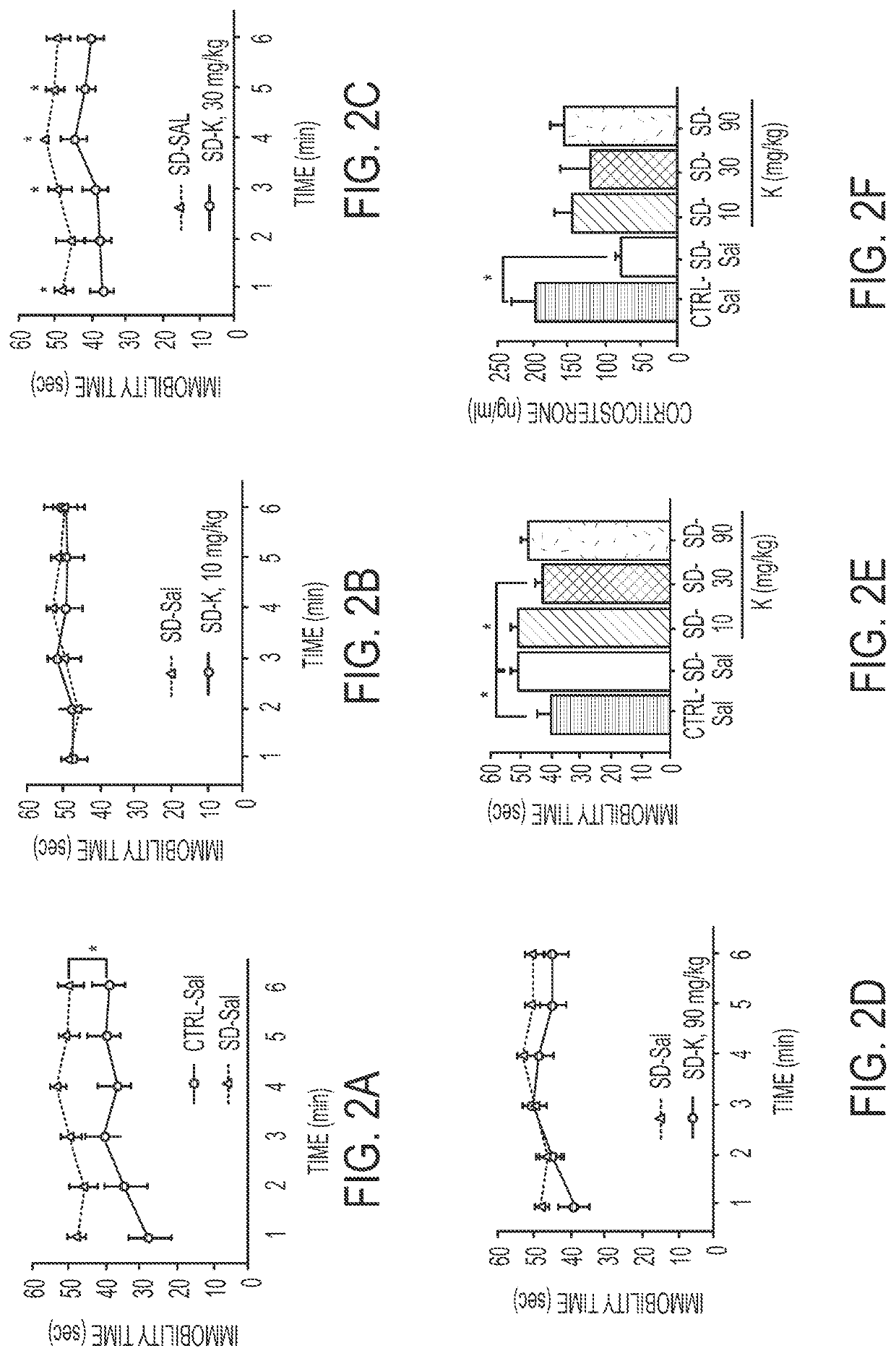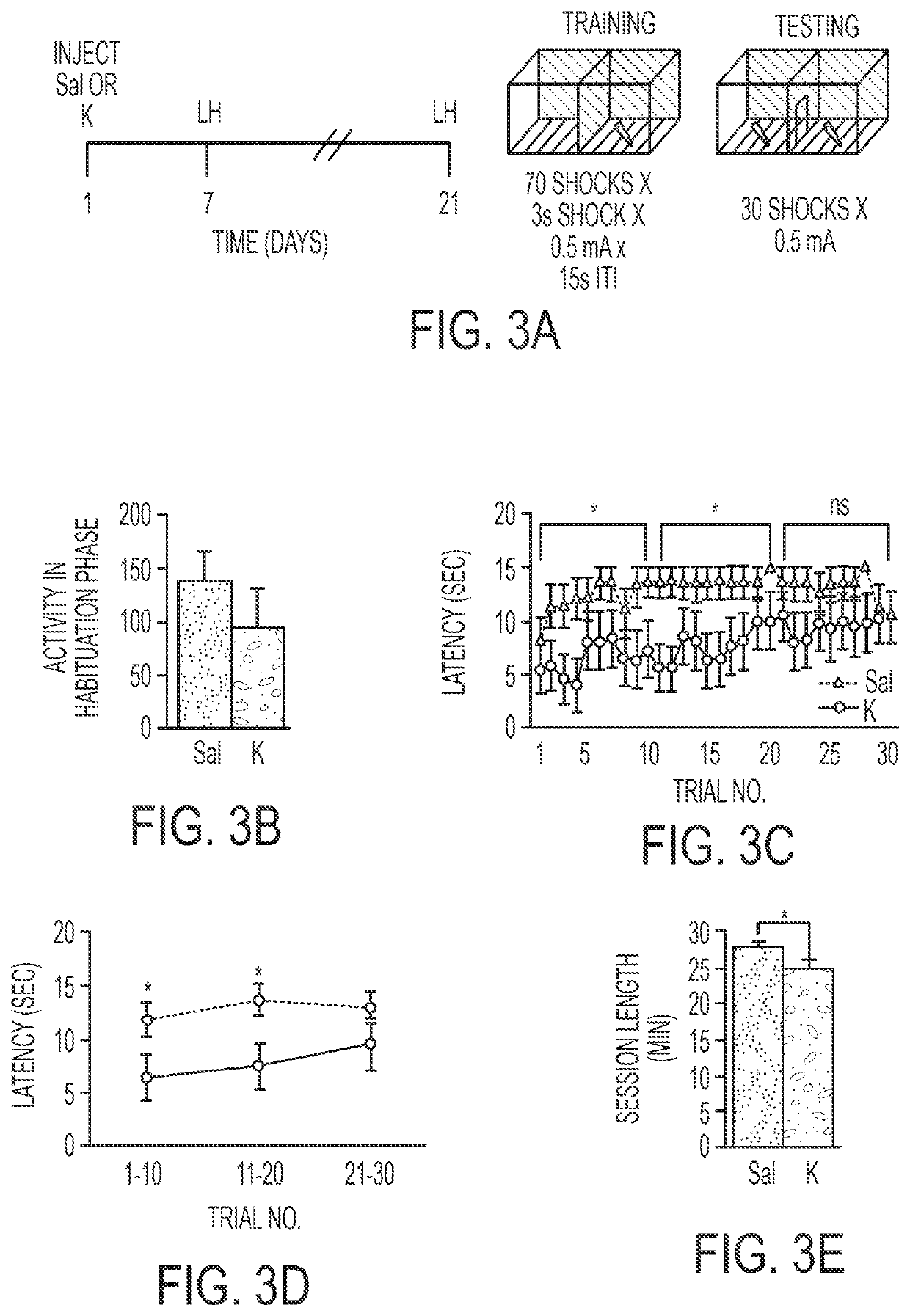Pharmacological prophylactics against stress-induced affective disorders and their associated symptoms
a technology of affective disorders and pharmaceutical prophylactics, applied in the field of ketamine compositions, can solve the problems of not being able to cure or prevent the disease itself, classical antidepressant efficacy is neither sufficient for, nor necessarily predictive of, primary prophylactic efficacy, etc., and achieves the effect of preventing or delaying stress-induced cognitive impairment and/or declin
- Summary
- Abstract
- Description
- Claims
- Application Information
AI Technical Summary
Benefits of technology
Problems solved by technology
Method used
Image
Examples
example 1
Ketamine as a Prophylactic Against Stress-Induced Depressive-Like Behavior
[0194]Stress exposure is one of the greatest risk factors for psychiatric illnesses like major depressive disorder and posttraumatic stress disorder. However, not all individuals exposed to stress develop affective disorders. Stress resilience, the ability to experience stress without developing persistent psychopathology, varies from individual to individual. Enhancing stress resilience in at-risk populations could potentially protect against stress-induced psychiatric disorders. Despite this fact, no resilience-enhancing pharmaceuticals have been identified.
[0195]Using a chronic social defeat (SD) stress model, learned helplessness (LH), and a chronic corticosterone (CORT) model in mice, we tested if ketamine could protect against depressive-like behavior. Mice were administered a single dose of saline or ketamine and then 1 week later were subjected to 2 weeks of SD, LH training, or 3 weeks of CORT.
[0196]SD...
example 2
Prophylactic Ketamine Reduces Fear Expression
[0264]Ketamine has been reported to be an efficacious antidepressant for major depressive disorder (MDD) and posttraumatic stress disorder (PTSD). Most recently, ketamine has also been shown to be prophylactic against stress-induced depressive-like behavior in mice. It remains unknown, however, when ketamine should be administered relative to a stressor in order to maximize its antidepressant and / or prophylactic effects. Moreover, it is unknown if ketamine can be prophylactic against subsequent stressors.
[0265]We systematically administered ketamine at different time points relative to a fear experience in order to determine when ketamine is most effective at reducing fear expression or preventing fear reactivation. Using a contextual fear conditioning (CFC) paradigm, mice were administered a single dose of saline or ketamine (30 mg kg−1) at varying time points before or after CFC.
[0266]Mice administered prophylactic ketamine 1 week, but ...
PUM
| Property | Measurement | Unit |
|---|---|---|
| weight | aaaaa | aaaaa |
| weight | aaaaa | aaaaa |
| weight | aaaaa | aaaaa |
Abstract
Description
Claims
Application Information
 Login to View More
Login to View More - R&D
- Intellectual Property
- Life Sciences
- Materials
- Tech Scout
- Unparalleled Data Quality
- Higher Quality Content
- 60% Fewer Hallucinations
Browse by: Latest US Patents, China's latest patents, Technical Efficacy Thesaurus, Application Domain, Technology Topic, Popular Technical Reports.
© 2025 PatSnap. All rights reserved.Legal|Privacy policy|Modern Slavery Act Transparency Statement|Sitemap|About US| Contact US: help@patsnap.com



